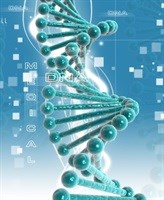New research from Frost & Sullivan's 'Analysis of the Global Biosimilars Market' finds the market earned revenue of about $1.2 billion in 2013 and estimates this will reach approximately $24 billion in 2019. Untapped US markets, with a strong biosimilars* pipeline, as well as markets in Asia-Pacific and Latin America with a low cost of manufacturing will afford key growth opportunities.
The imminent entry of several companies, including big pharmaceutical, small biotech and generic participants, into the global biosimilars space will propel the market towards exponential growth. Already, Indian groups such as Dr. Reddy's Laboratories, Biocon and Reliance Life Sciences are making a concerted effort to enter the European market. Although these companies have not yet penetrated the European market due to the stringent regulatory pathway, new product launches are expected in the mid-term.
Biosimilar markets in countries such as the US and Japan are expected to grow exponentially with more clarity on the regulatory pathway.
Patent infringement issues delay release
"On one hand, the market is powering ahead regarding the strength of participants' global expansion strategies but on the other, it is still beset by traditional patent-infringement issues," says Frost & Sullivan Healthcare senior research analyst, K. Srinivas Sashidhar.
"Moreover, the strategies adopted by innovator companies need to be taken into account. For instance, Johnson & Johnson has extended the European patent life of its innovator drug Remicade until February 2015, thereby delaying the launch of Hospira's biosimilar monoclonal antibody (mAb) Inflectra and Celltrion's biosimilar mAb Remsima."
To reduce the time to market further, companies should also explore opportunities in mergers and acquisitions and alliances with companies having expertise in biosimilars manufacturing and development like Teva's alliance with Cephalon and Lupin Pharmaceuticals' alliance with Neuclone.
"In addition to mAbs, follitropins, interferons and low molecular weight heparins are likely to emerge in the long run. However, some companies may focus on specific therapeutic classes depending on their capabilities and strategic fit."
For more information, e-mail Samantha James at moc.tsorf@semaj.ahtnamas with full name, company name, job title, telephone number, company e-mail address, company website, city, state and country.
*Biosimilars, also known as follow-on biologics, are biologic medical products whose active drug substance are made by a living organism or derived from a living organism by means of recombinant DNA or controlled gene expression methods. Biosimilar or Biosimilarity means that the biological product is highly similar to the reference product, even if there are minor differences in clinically inactive components; and there are no clinically meaningful differences between the biological product and the reference product in terms of the safety, purity and potency of the product.



























